Dismantling the new iMac 2012
The guys from iFixit, as always, do not miss the chance to parse something and clearly show it to readers. Today we will see a showdown of the new iMac. Since 2007, the aluminum iMac has not changed in any way, until this fall we were shown a new thin all-in-one. So let's look at it from the inside out!
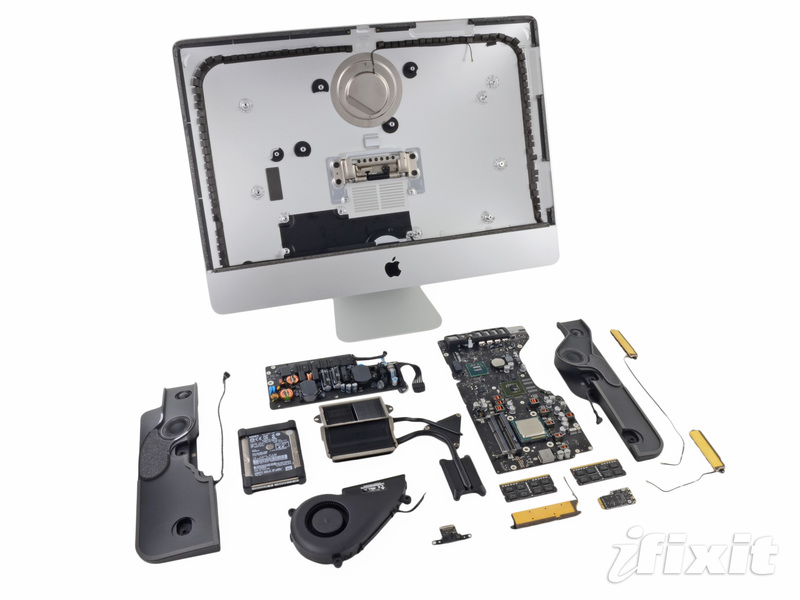
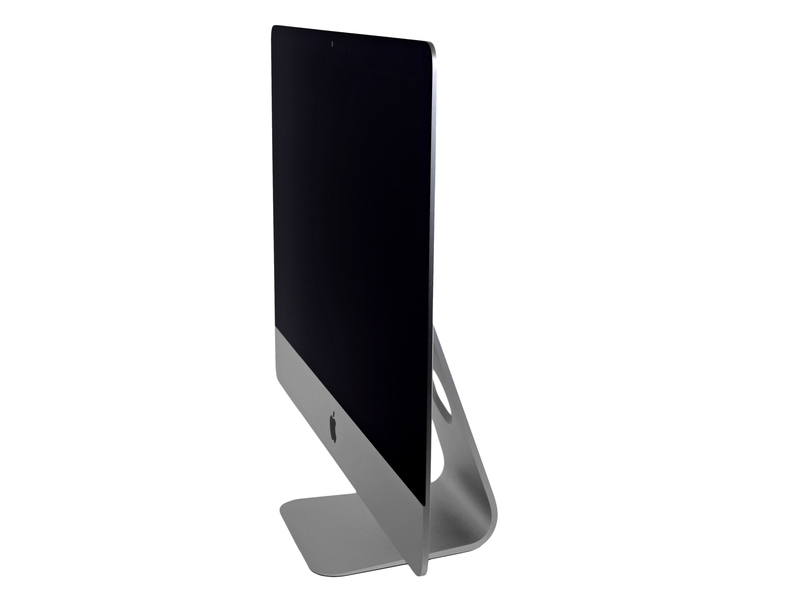
The new iMac does not have a Retina screen, but its specifications are not so bad:
If you have not heard, the new iMac is the thinnest of its kind. At the edge of the candy bar, its thickness is 5 mm, in the center it is 4 cm thick.
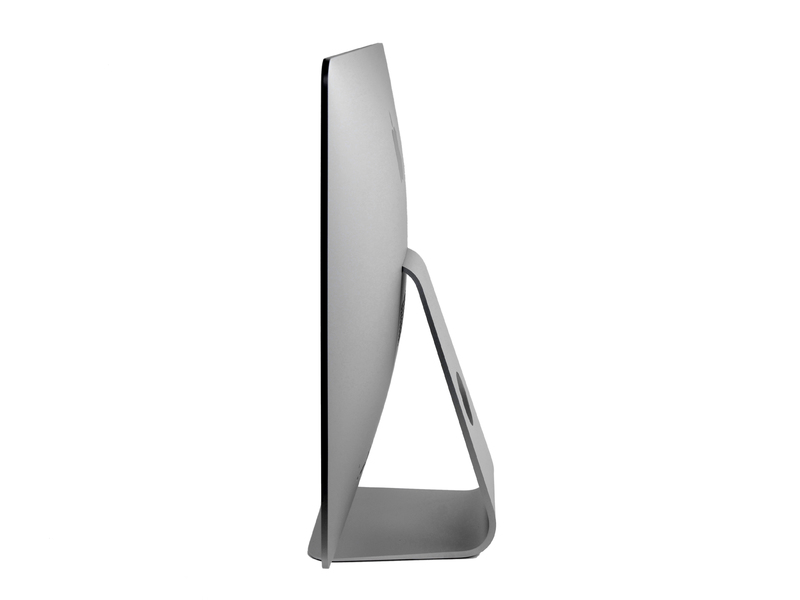
Due to the thickness of the new case, I had to sacrifice a drive, but there are still many ports:
◼ 3.5 mm headphones
◼ SDXC memory card slot
от 4 USB 3.0 slots
◼ 2 Thunderbolt
◼ Gigabit Ethernet Connector The
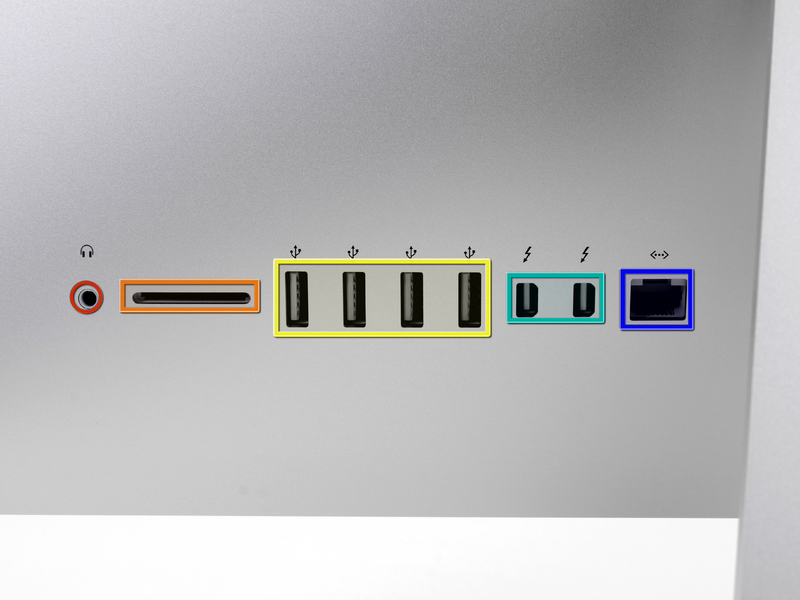
ventilation grille is hidden behind the All-in-One Stand.

Perforation for microphones is visible in the upper part of the case.
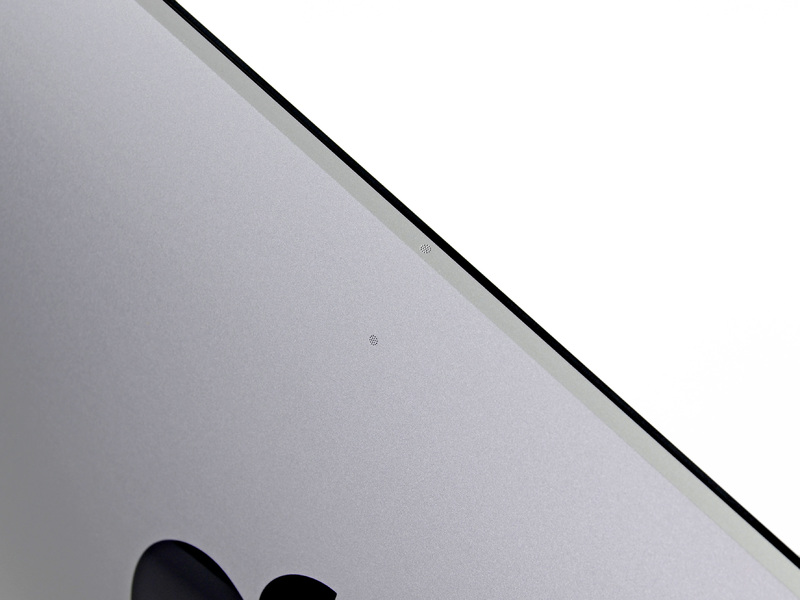
Information about the model is located on the stand. Collected in the USA .

In older iMacs, the screen frame was supported by magnets and it was easy enough to remove it with the help of suction cups. In the new monoblock, the display frame is glued, as in the iPad. To remove it, we heat the frame with a hairdryer and unstick it with the help of mediators.
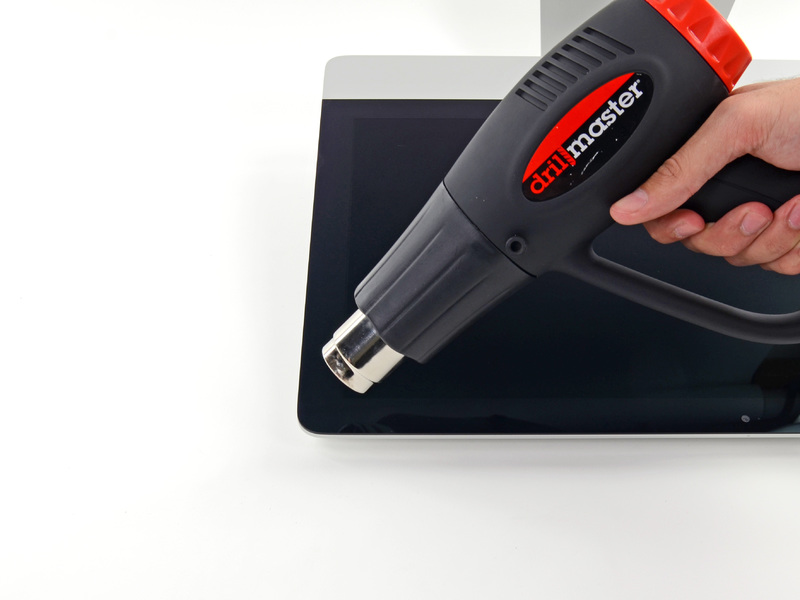
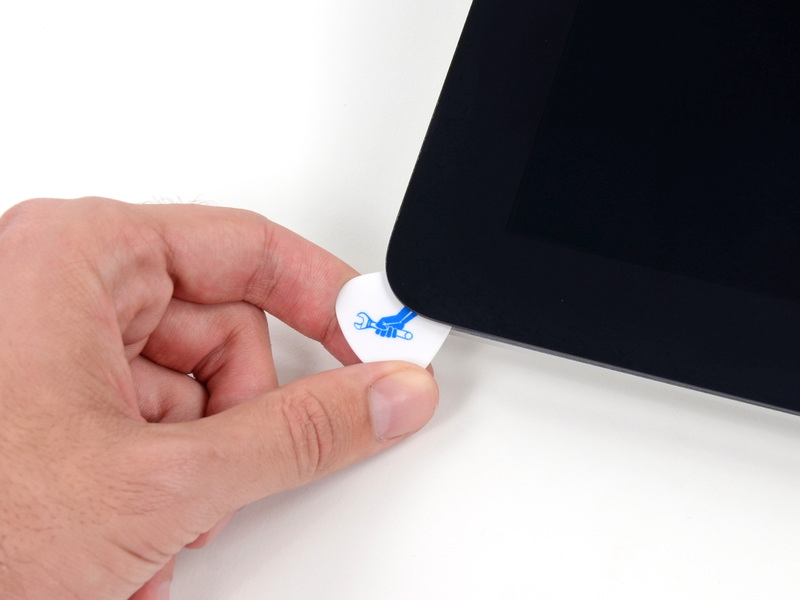
The matrix is glued with glass. This means that if you break the glass, you will have to change everything entirely. On the other hand, picture quality has become better.
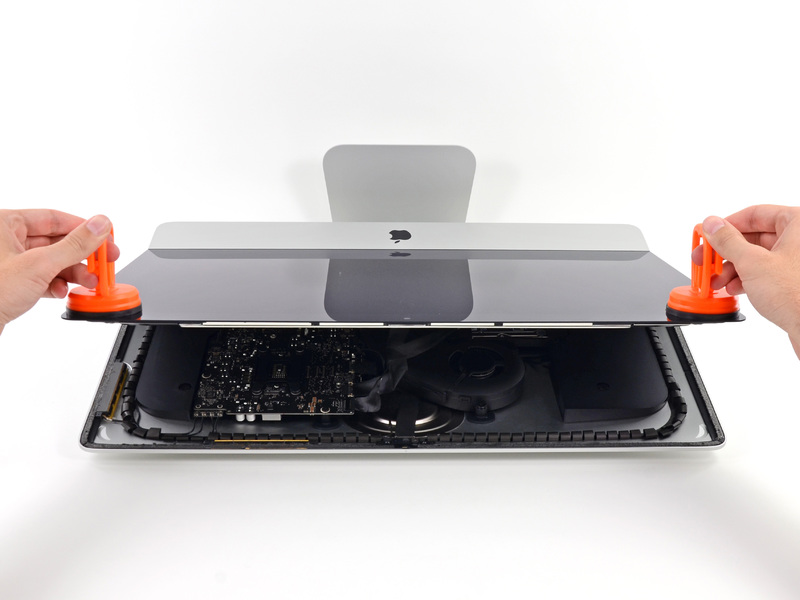

The adhesive tape that holds the display, it seems like a one-time, will have to glue a new one.
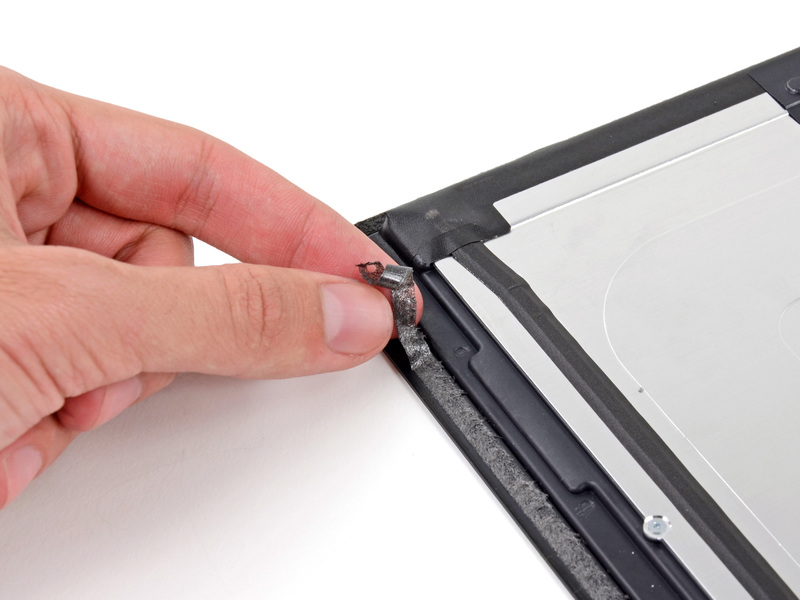
Surprisingly, the matrix is the same as on last year's iMac - LM215WF3.
It looks like Apple just made the case thinner.
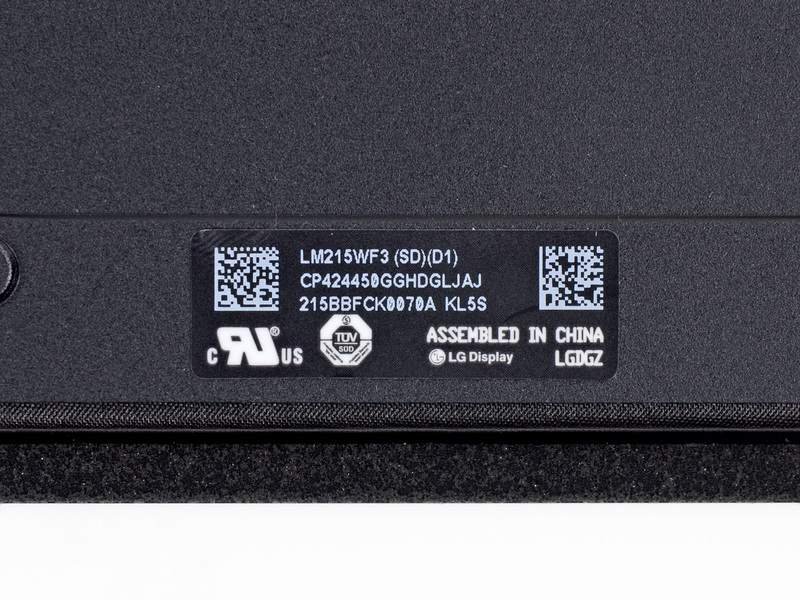
Take a look at the screen controller:

◼ Texas Instruments TPS65161 powered

◼ Parade DP627HDEDisplayPort LCD controller
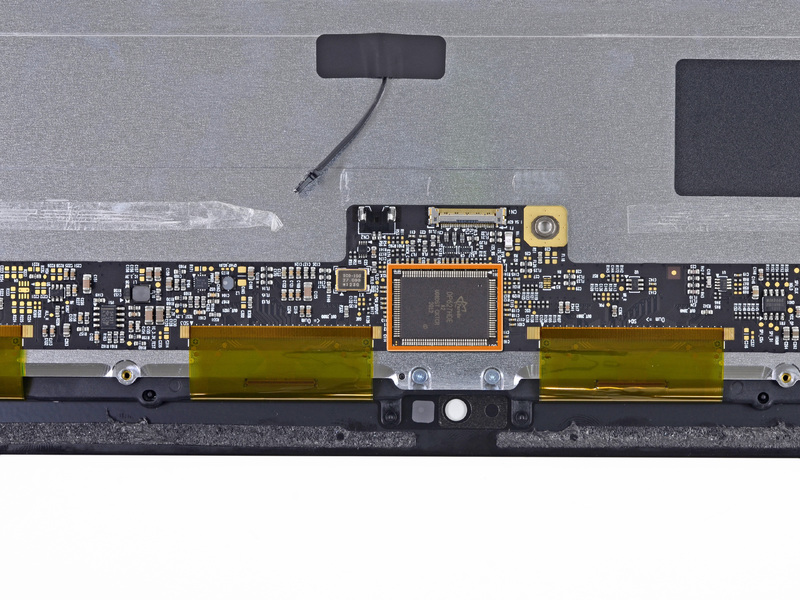
Inside, everything has changed dramatically. If you have a new iMac such a wallpaper will be welcome.
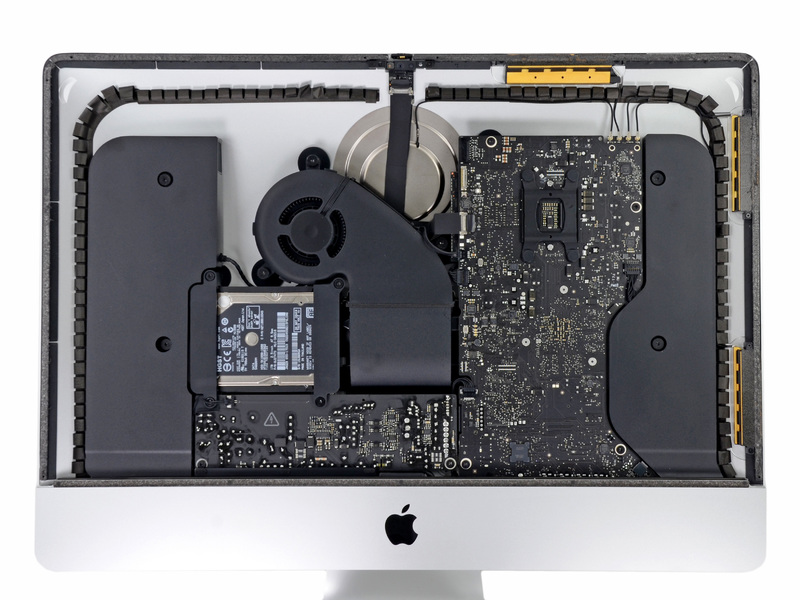
Let's start removing the hard drive.
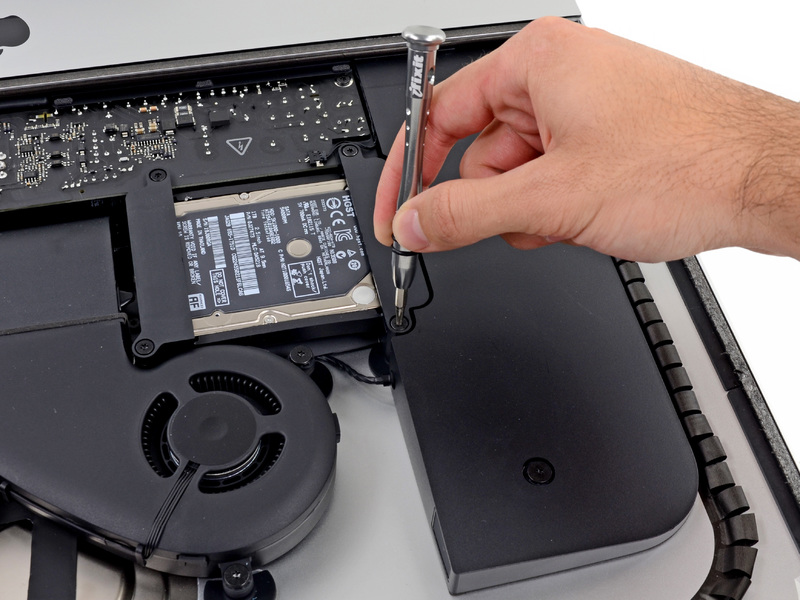
Using a 2.5 ”hard drive is understandable. They are quieter, take up less space and have fewer moving parts. Apple supplied a drive from HGST (Western Digital, Hitachi) The
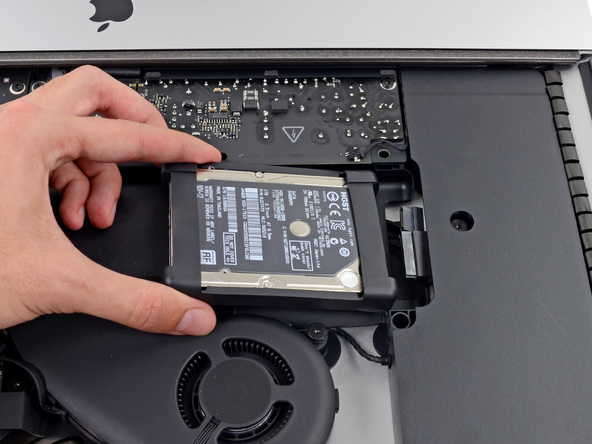
rubber case in which the drive is housed protects its controller. This design is very different from what we saw before. Since all components are located very close together, vibration from the hard drive can be harmful to them. The rubber disc body dampens these vibrations.
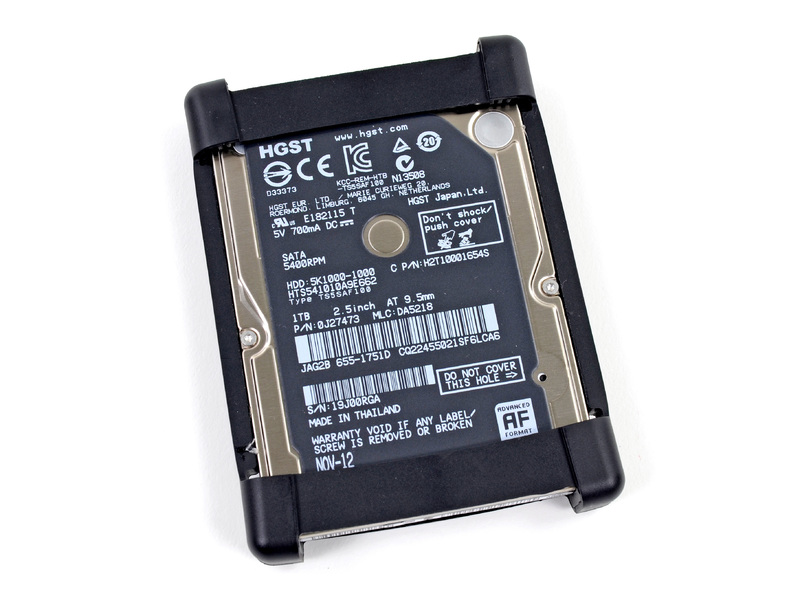
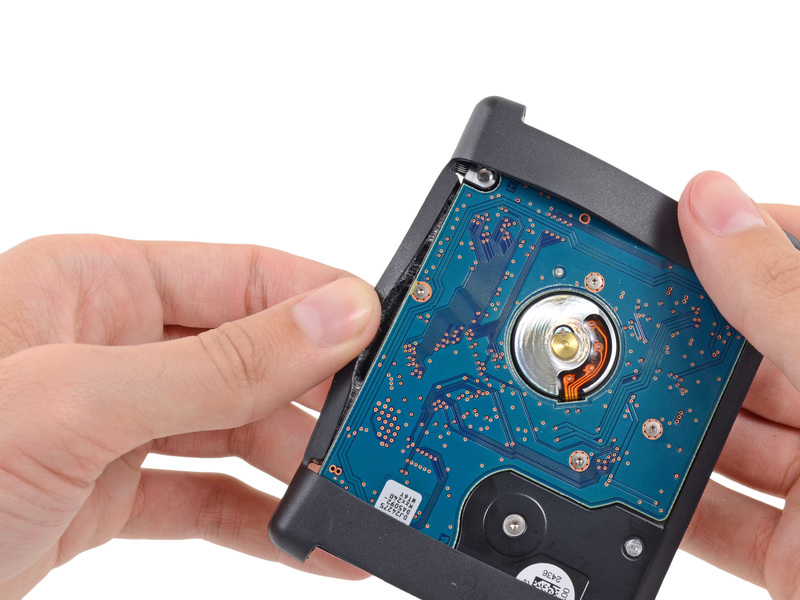
We begin to remove the power supply. Its output is 12.1 V, 15.4 A.
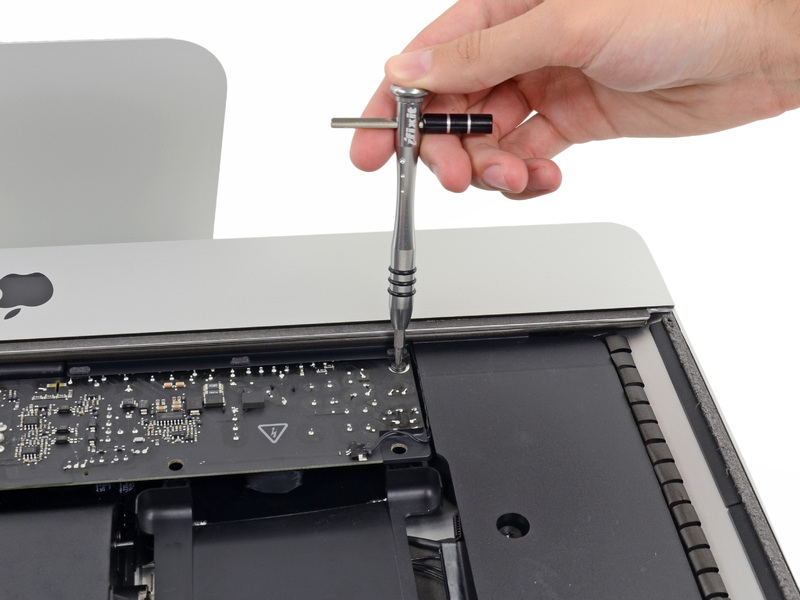
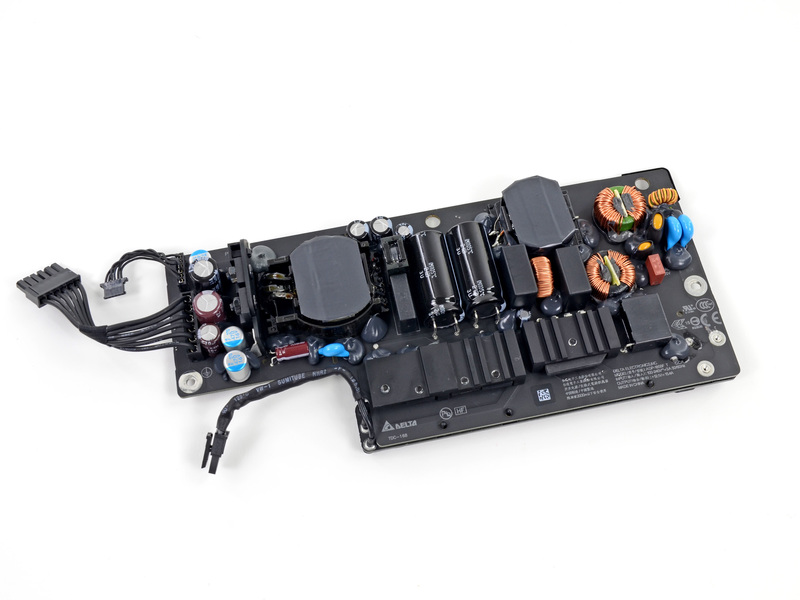

New cooler! Now there is only one fan.
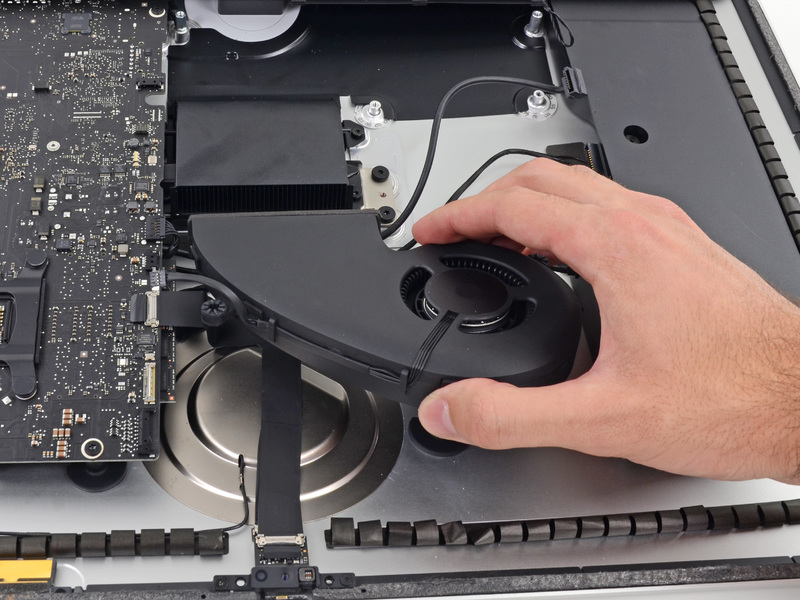
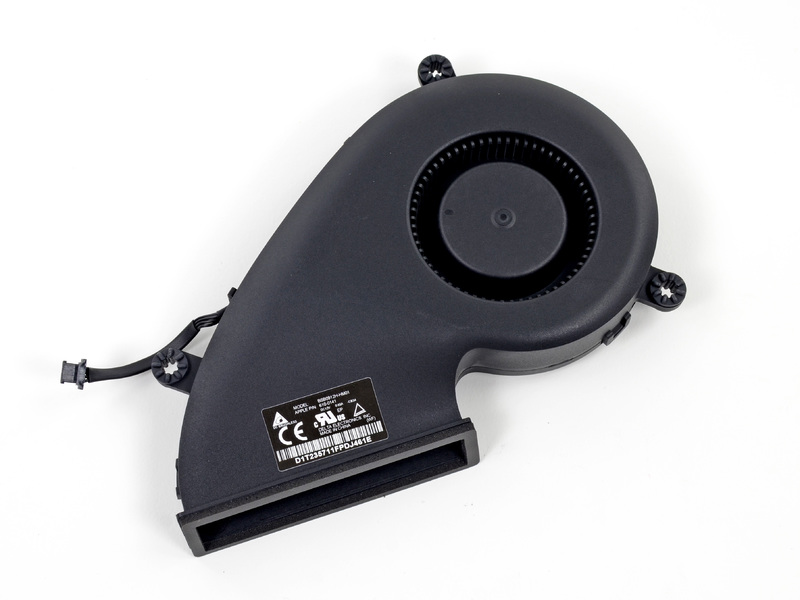
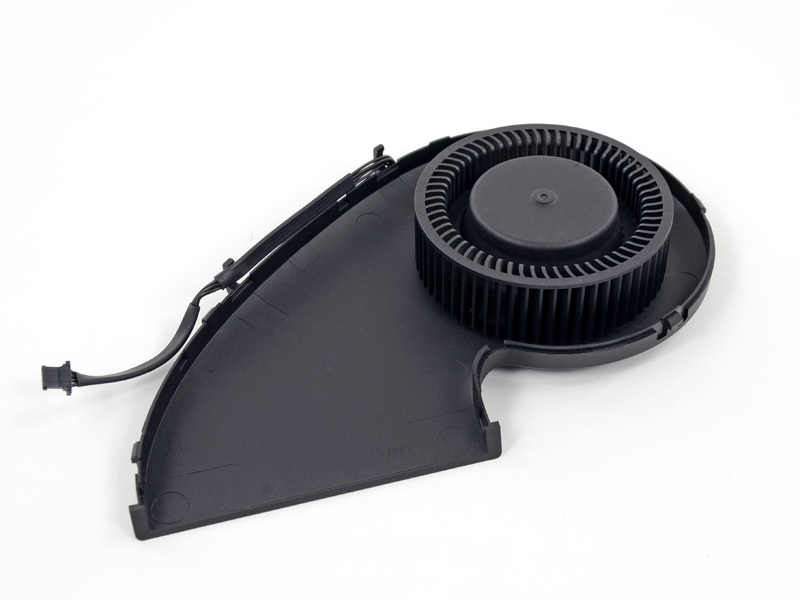
The “FaceTime HD” camera with the controller connects to the motherboard with a long loop.
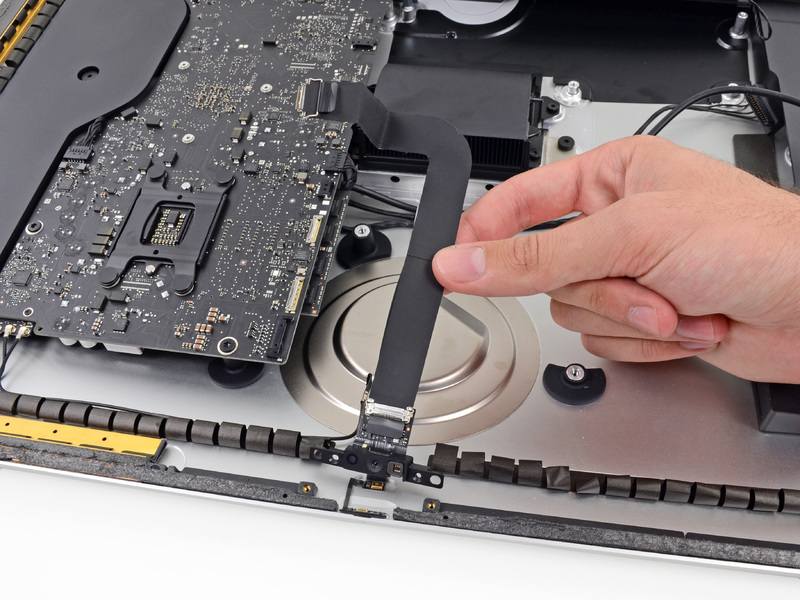

The new iMac received 2 microphones. As in mobile devices, the second microphone is responsible for noise reduction. The microphone and camera are placed separately, if something breaks, you do not have to change the entire board.
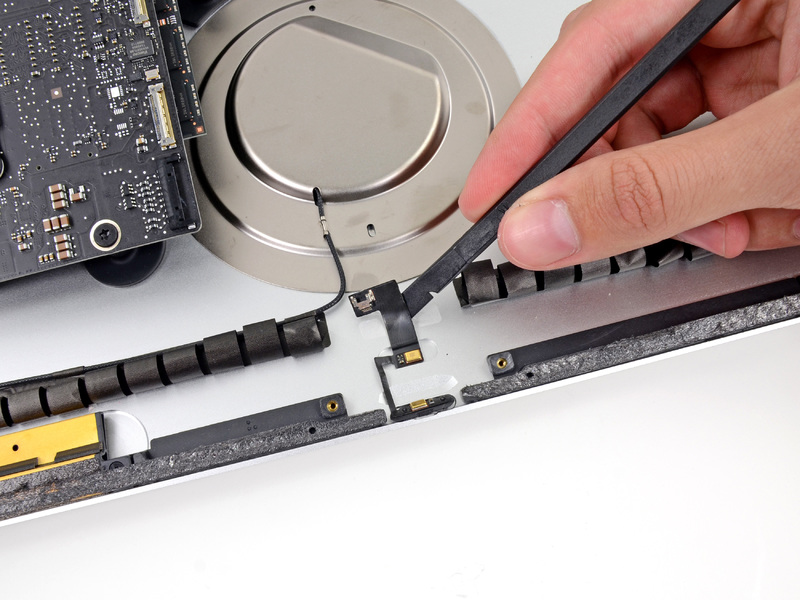
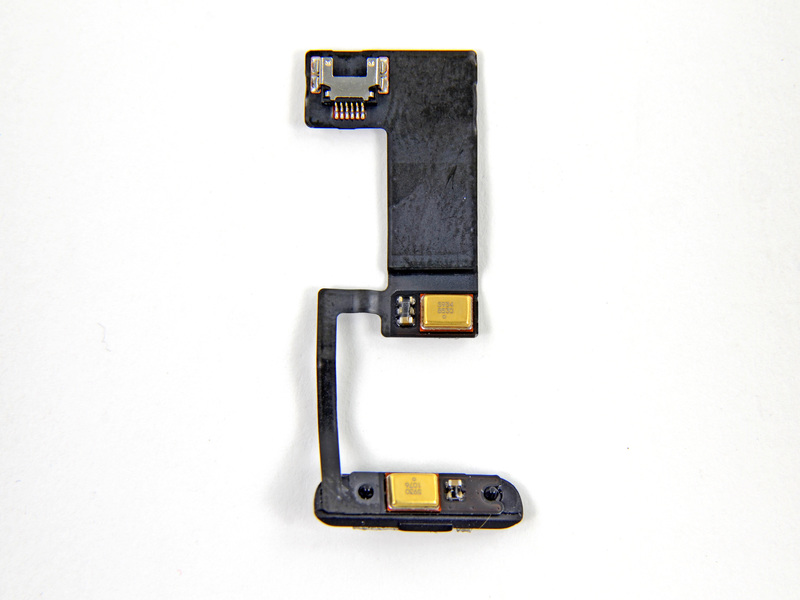
We disconnect coaxial cables from 2 antennas. The main Wi-Fi antenna is hidden in an apple on the case.
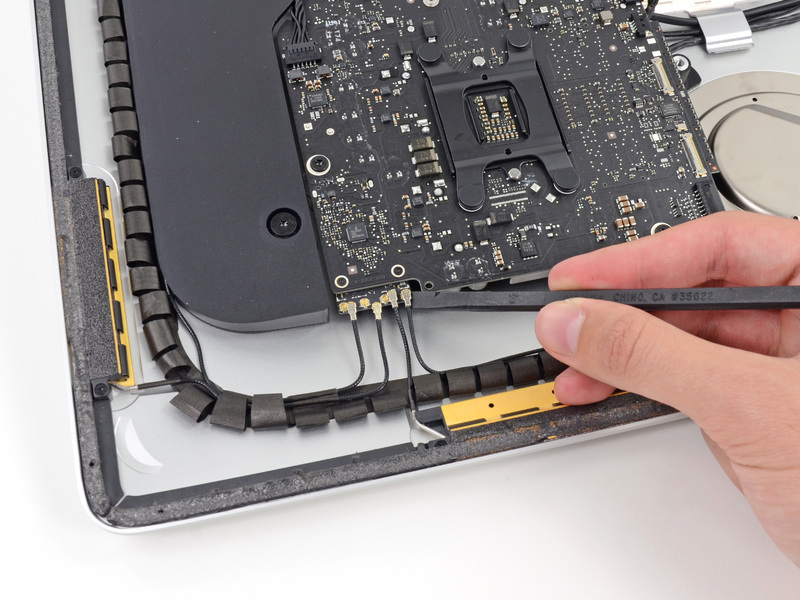
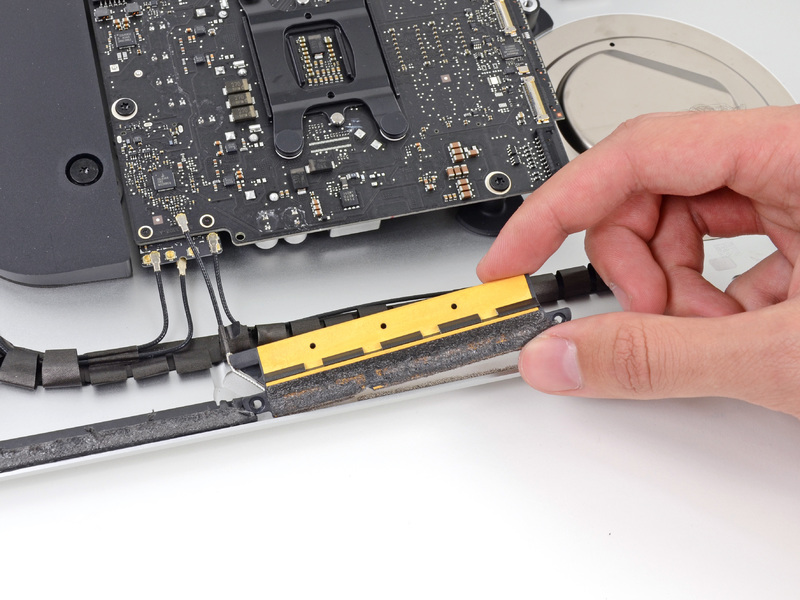
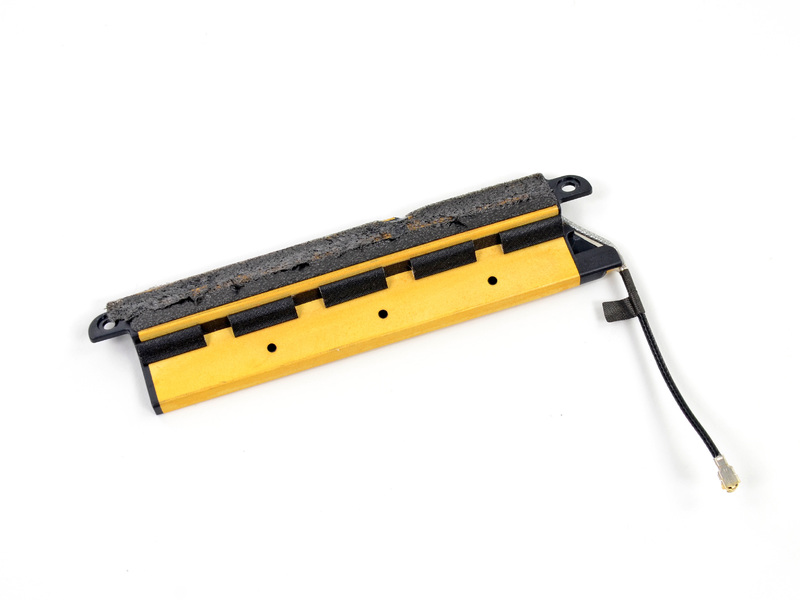
Acoustics has an impressive body, inside a couple of speakers hid.
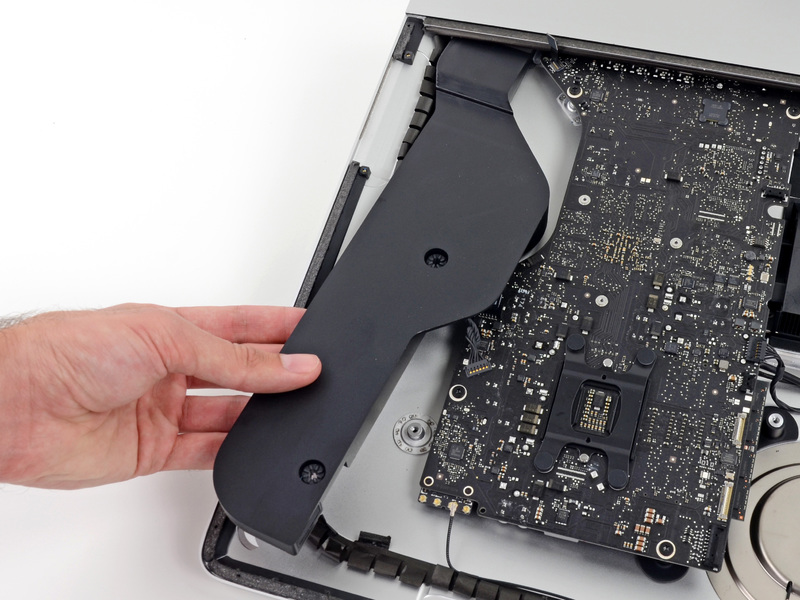
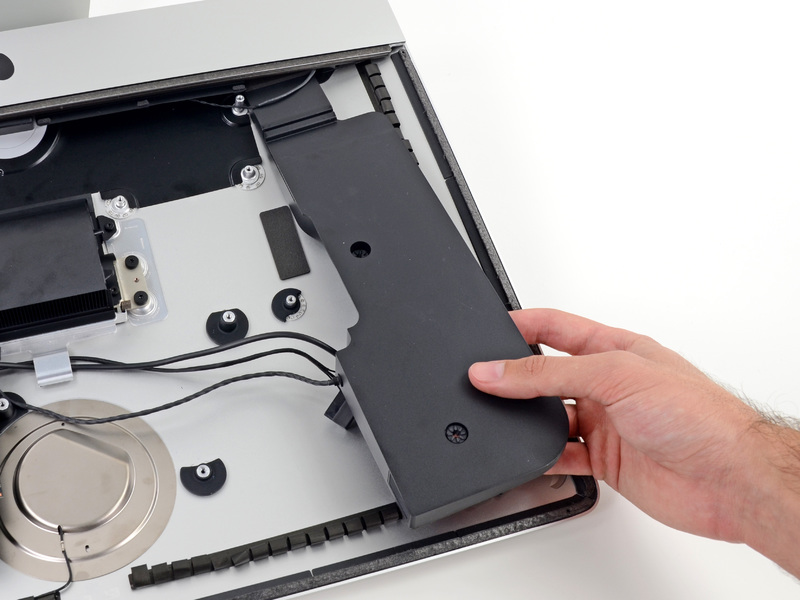
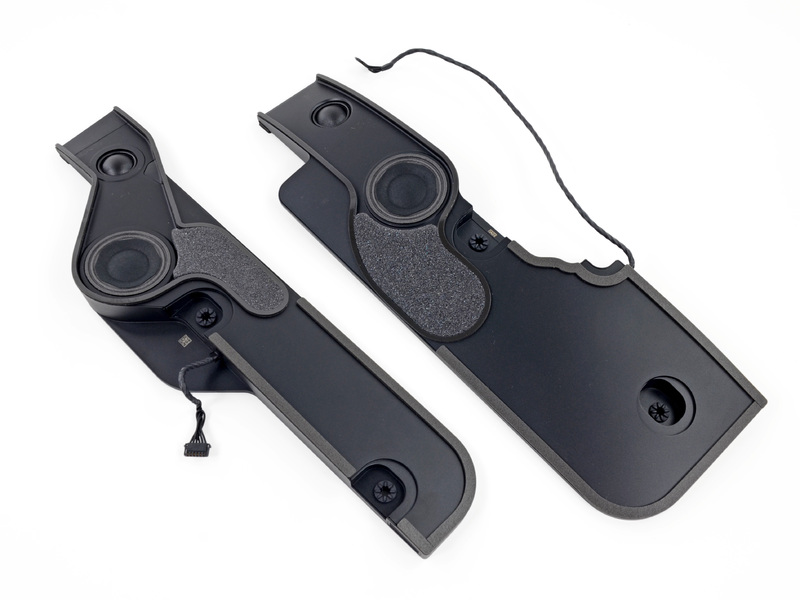
We begin to remove the motherboard.

Turn it over and see the whole filling.

Good news! The memory can be replaced. It costs 8 GB of Hynix PC3-12800 RAM.
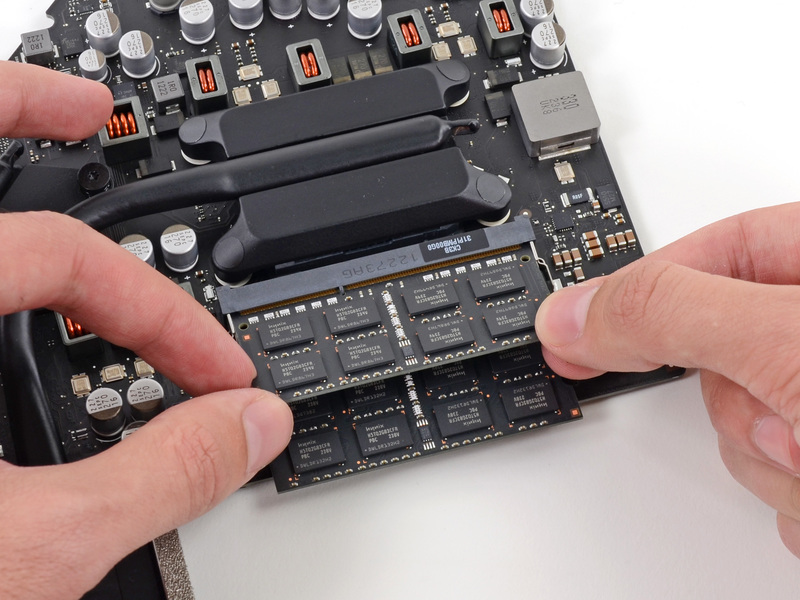

AirPort lurks in the corner of the motherboard.
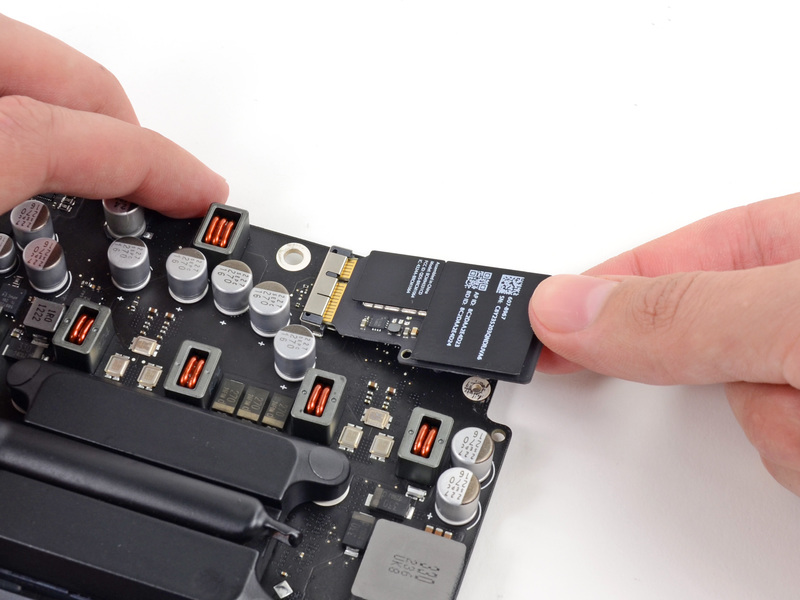
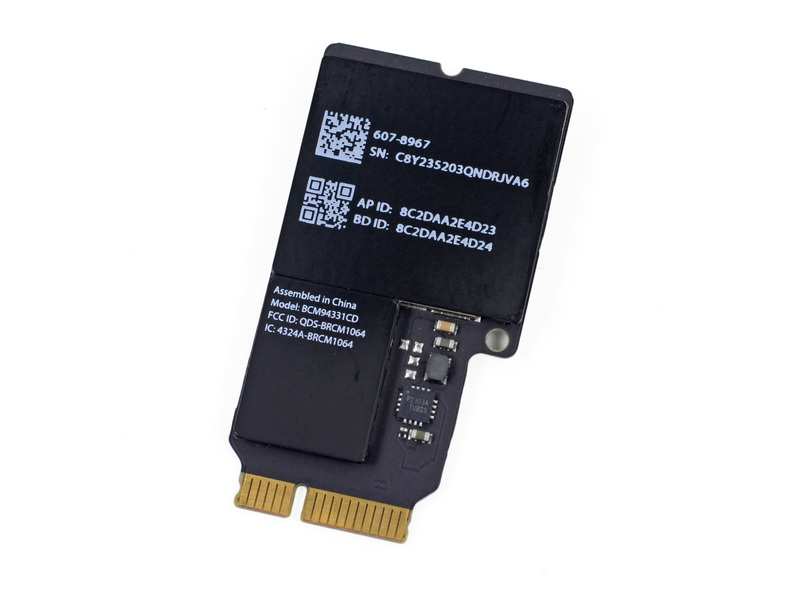
◼ BroadcomBCM4331 WLAN .
◼ Three Wi-Fi antennas powered by Skyworks SE5515 Dual-Band.
◼ Bluetooth and Wi-Fi are integrated in one piece thanks to the BCM20702 Bluetooth 4.0 processor.
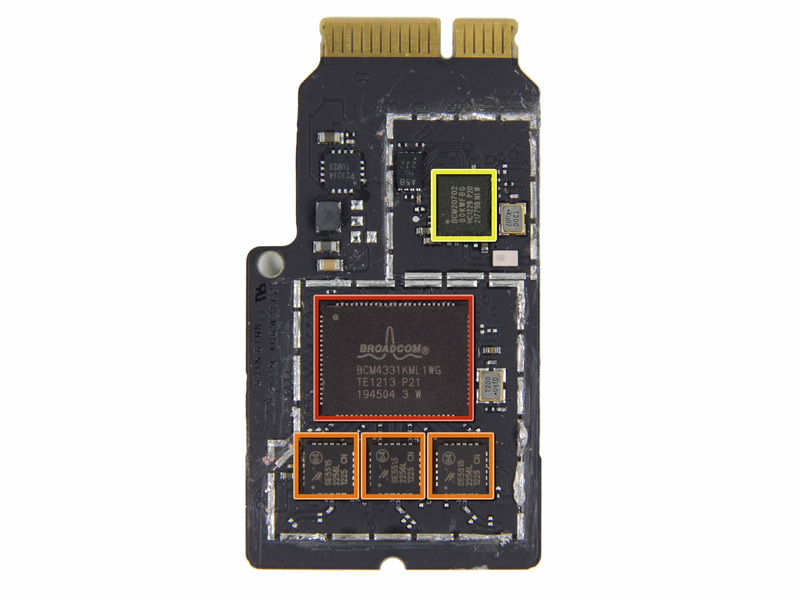
We remove the radiator and see our processor.

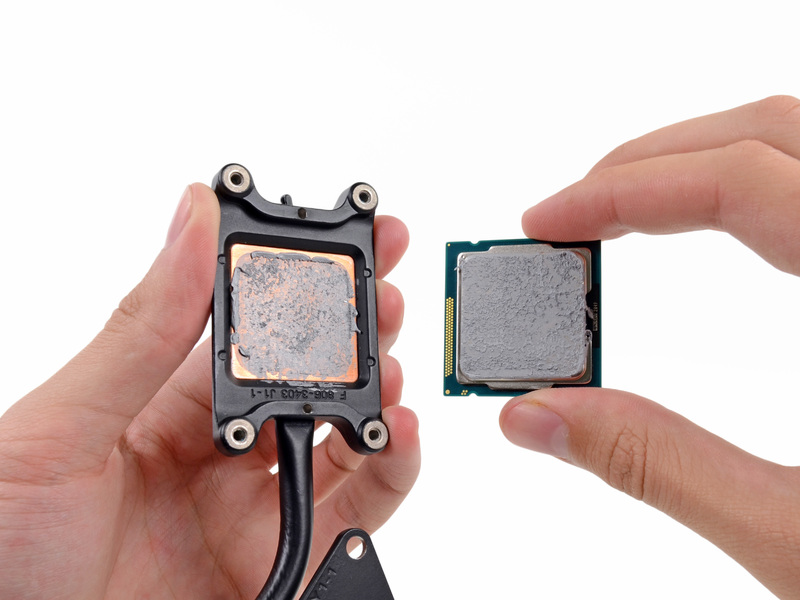
Before us is the FCLGA1155 connector .
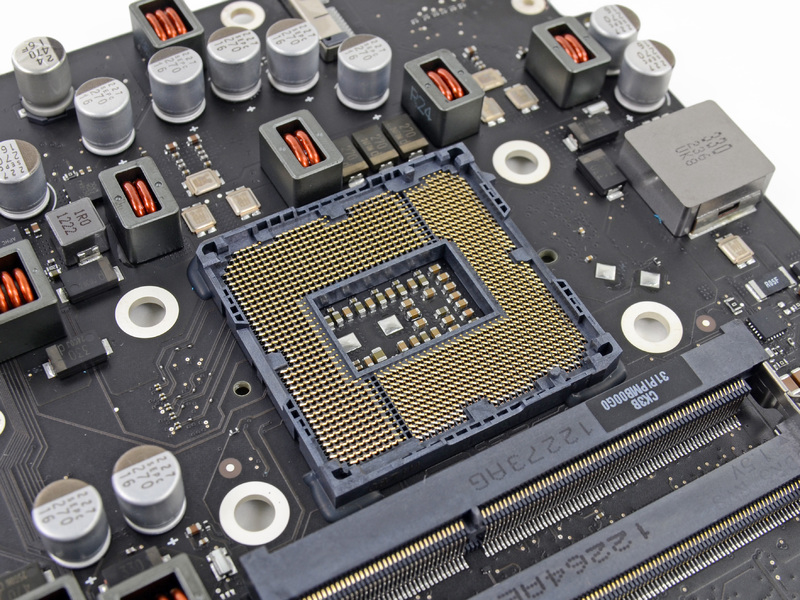
Intel Core i5-3330S clocked at 2.7 GHz, operating at 3.2 GHz as needed.
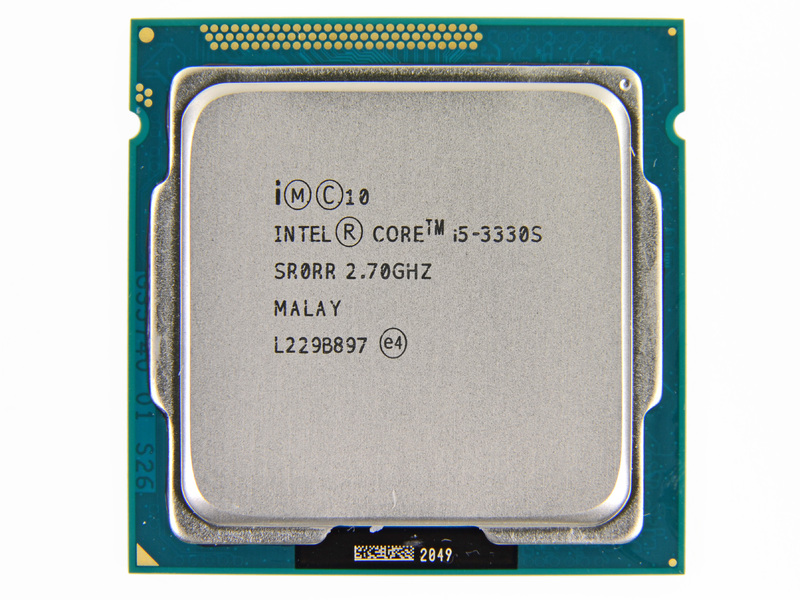

Consider the main elements on the motherboard:
◼ Nvidia GeForce GT 640M GPU
◼ Intel E213B384 Platform Controller Hub
◼ Texas Instruments Stellaris LM4FS1AH
◼ 2x Hynix H5GQ2H24AFR GDDR5 SGRAM
◼ National Semiconductor VM22AC
◼ of Delta 8904C-the F
◼ the Broadcom BCM57765A1KMLG Gigabit Ethernet Controller with integrated card reader SDXC

On the other side:
◼ the Intel DSL3510L Cactus Files Manager Ridge controller the Thunderbolt
◼ the Analog Devices' SSM3302 audio amplifier
◼ Vimicro VC0359 controller webcam
◼ Intersil ISL6364
◼ the Cirrus Logic 4206BCNZ audio controller, the same chip as last year’s 21.5 "iMac.
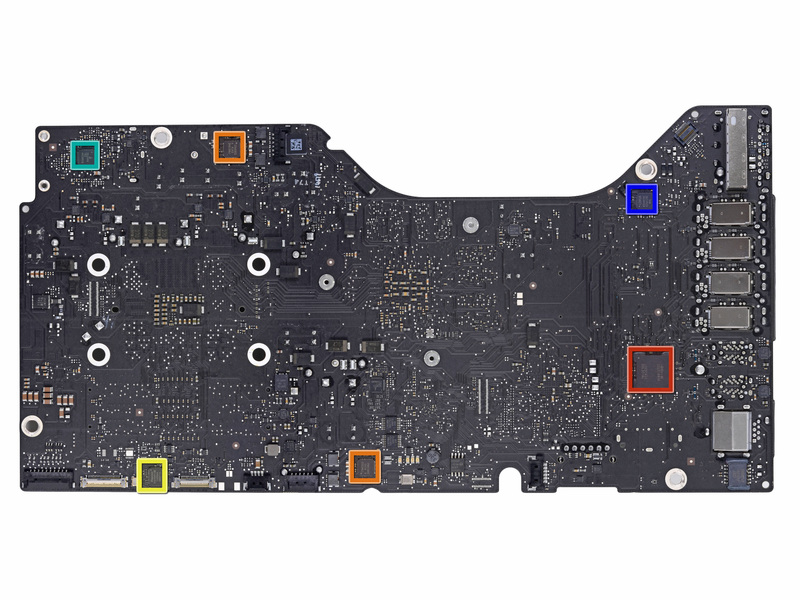
Looks like there is room for an SSD?
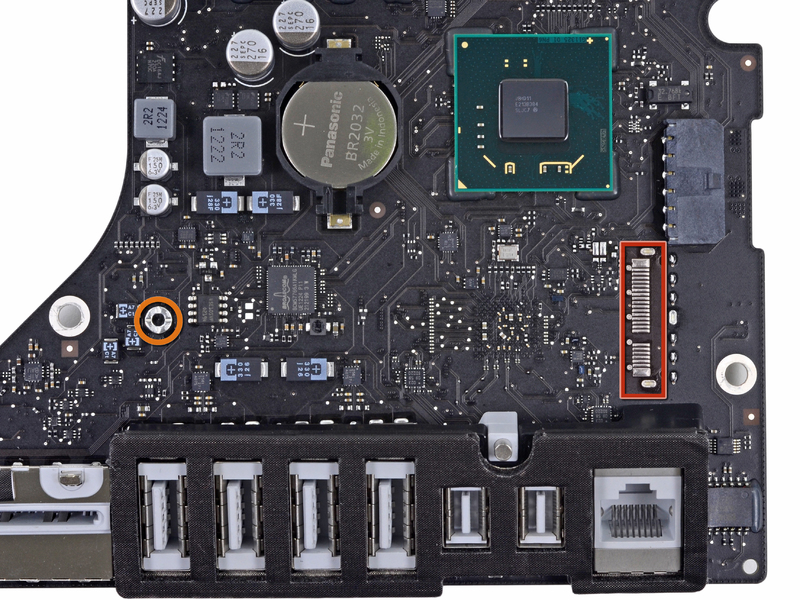
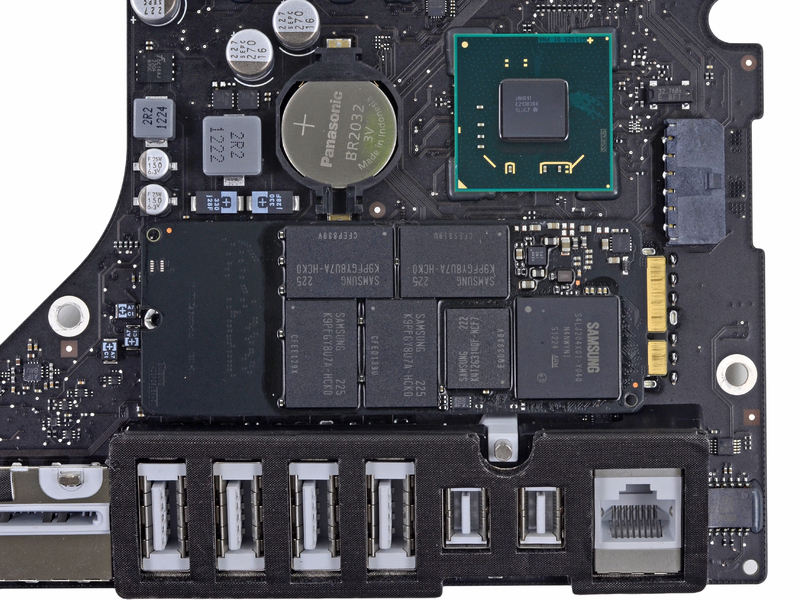
So, to summarize. The new iMac received 3 out of 10 points (10 points the easiest to repair) for maintainability.
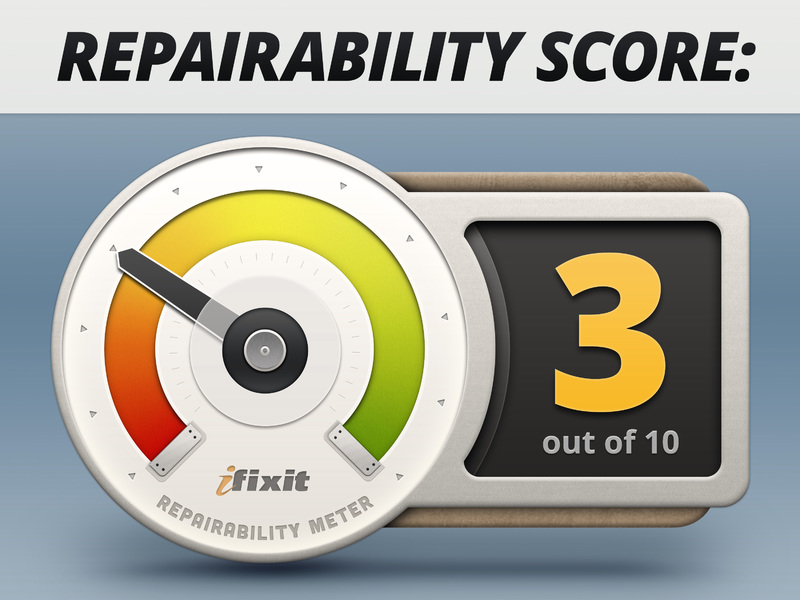
You can replace RAM, hard drive and processor.
The glass and the matrix are now connected together, the matrix can only be removed with a hairdryer.
Most removable components (such as RAM) are hidden on the back of the motherboard. This means that you will have to disassemble most of the candy bar, only to gain access to them.
To remove the adhesive tape, you will have to try not to damage it. Or you have to glue a new one.
iFixit


The new iMac does not have a Retina screen, but its specifications are not so bad:
- 2.7 GHz Quad Core Intel Core i5 Processor with 6 MB L3 Cache
- 8 GB RAM
- 1 TB HDD (5400 rpm)
- NVIDIA GeForce GT 640M with 512 MB of memory
- 4 USB 3.0 ports and 2 Thunderbolt ports
- 802.11n Wi-Fi and Bluetooth 4.0
If you have not heard, the new iMac is the thinnest of its kind. At the edge of the candy bar, its thickness is 5 mm, in the center it is 4 cm thick.

Due to the thickness of the new case, I had to sacrifice a drive, but there are still many ports:
◼ 3.5 mm headphones
◼ SDXC memory card slot
от 4 USB 3.0 slots
◼ 2 Thunderbolt
◼ Gigabit Ethernet Connector The

ventilation grille is hidden behind the All-in-One Stand.

Perforation for microphones is visible in the upper part of the case.

Information about the model is located on the stand. Collected in the USA .

In older iMacs, the screen frame was supported by magnets and it was easy enough to remove it with the help of suction cups. In the new monoblock, the display frame is glued, as in the iPad. To remove it, we heat the frame with a hairdryer and unstick it with the help of mediators.


The matrix is glued with glass. This means that if you break the glass, you will have to change everything entirely. On the other hand, picture quality has become better.


The adhesive tape that holds the display, it seems like a one-time, will have to glue a new one.

Surprisingly, the matrix is the same as on last year's iMac - LM215WF3.
It looks like Apple just made the case thinner.

Take a look at the screen controller:

◼ Texas Instruments TPS65161 powered

◼ Parade DP627HDEDisplayPort LCD controller

Inside, everything has changed dramatically. If you have a new iMac such a wallpaper will be welcome.

Let's start removing the hard drive.

Using a 2.5 ”hard drive is understandable. They are quieter, take up less space and have fewer moving parts. Apple supplied a drive from HGST (Western Digital, Hitachi) The

rubber case in which the drive is housed protects its controller. This design is very different from what we saw before. Since all components are located very close together, vibration from the hard drive can be harmful to them. The rubber disc body dampens these vibrations.


We begin to remove the power supply. Its output is 12.1 V, 15.4 A.



New cooler! Now there is only one fan.



The “FaceTime HD” camera with the controller connects to the motherboard with a long loop.


The new iMac received 2 microphones. As in mobile devices, the second microphone is responsible for noise reduction. The microphone and camera are placed separately, if something breaks, you do not have to change the entire board.


We disconnect coaxial cables from 2 antennas. The main Wi-Fi antenna is hidden in an apple on the case.



Acoustics has an impressive body, inside a couple of speakers hid.



We begin to remove the motherboard.

Turn it over and see the whole filling.

Good news! The memory can be replaced. It costs 8 GB of Hynix PC3-12800 RAM.


AirPort lurks in the corner of the motherboard.


◼ BroadcomBCM4331 WLAN .
◼ Three Wi-Fi antennas powered by Skyworks SE5515 Dual-Band.
◼ Bluetooth and Wi-Fi are integrated in one piece thanks to the BCM20702 Bluetooth 4.0 processor.

We remove the radiator and see our processor.


Before us is the FCLGA1155 connector .

Intel Core i5-3330S clocked at 2.7 GHz, operating at 3.2 GHz as needed.


Consider the main elements on the motherboard:
◼ Nvidia GeForce GT 640M GPU
◼ Intel E213B384 Platform Controller Hub
◼ Texas Instruments Stellaris LM4FS1AH
◼ 2x Hynix H5GQ2H24AFR GDDR5 SGRAM
◼ National Semiconductor VM22AC
◼ of Delta 8904C-the F
◼ the Broadcom BCM57765A1KMLG Gigabit Ethernet Controller with integrated card reader SDXC

On the other side:
◼ the Intel DSL3510L Cactus Files Manager Ridge controller the Thunderbolt
◼ the Analog Devices' SSM3302 audio amplifier
◼ Vimicro VC0359 controller webcam
◼ Intersil ISL6364
◼ the Cirrus Logic 4206BCNZ audio controller, the same chip as last year’s 21.5 "iMac.

Looks like there is room for an SSD?


So, to summarize. The new iMac received 3 out of 10 points (10 points the easiest to repair) for maintainability.

You can replace RAM, hard drive and processor.
The glass and the matrix are now connected together, the matrix can only be removed with a hairdryer.
Most removable components (such as RAM) are hidden on the back of the motherboard. This means that you will have to disassemble most of the candy bar, only to gain access to them.
To remove the adhesive tape, you will have to try not to damage it. Or you have to glue a new one.
iFixit
